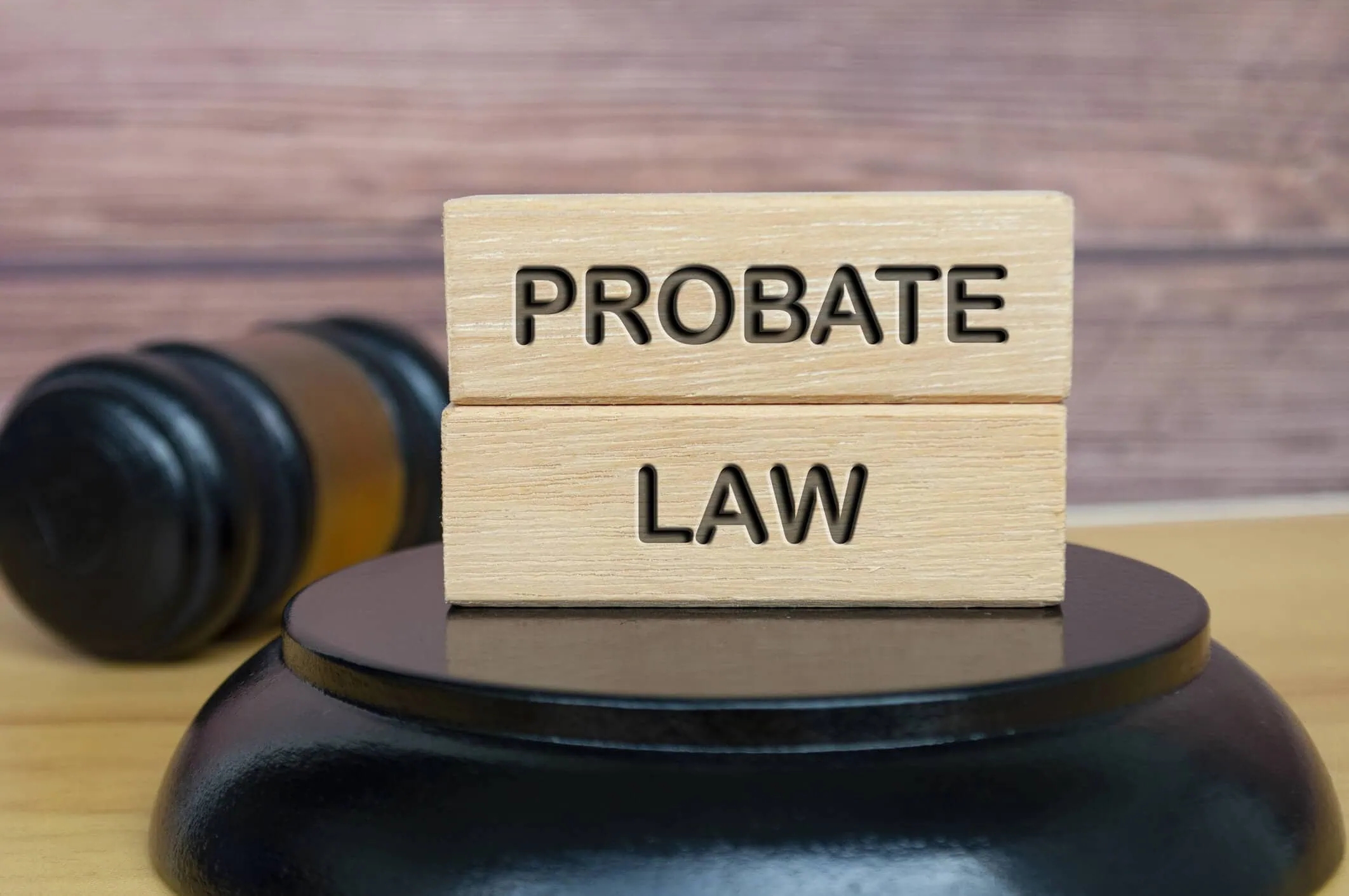Probate can be a complicated and emotionally exhausting procedure, but understanding the regulations might help make it more manageable. North Carolina, like many other states, has particular statutes and processes governing probate. This article is intended to provide a full understanding of North Carolina probate laws, including the process, essential phrases, and critical concerns.
What is Probate?
Probate, a fundamental legal process in North Carolina, meticulously oversees the administration and allocation of a deceased individual’s estate. It encompasses a series of steps, from verifying the validity of any existing will to evaluating and determining the value of the deceased’s assets. Subsequently, outstanding debts and taxes are settled, and the remaining assets are disbursed to the designated beneficiaries. Throughout this process, the Clerk of Superior Court in the county where the deceased lived plays a pivotal role, ensuring adherence to the state’s probate laws and facilitating a fair and orderly distribution of assets.
Spouses, someone close to the decedent, or their probate attorney may act as a representative during the administration process, handling documentation and estate planning matters. Guardianship may be established for minors, ensuring their inheritance is managed responsibly. Additionally, power of attorney may be granted to manage financial affairs, including bank accounts, real estate, and retirement accounts.
Life insurance policies and jewelry may also be included in the estate, with the right paperwork and forms necessary for their distribution. In some cases, notices are published to inform heirs and interested parties of the probate proceedings. Attorneys specializing in probate matters can provide invaluable help navigating the complexities of estate administration, ensuring that duties are fulfilled and expenses are managed appropriately.
Types of Probate in North Carolina
In North Carolina, probate proceedings come in various forms tailored to different estate scenarios, providing flexibility and efficiency in estate administration:
1. Formal Administration – Formal administration represents the traditional approach to estate administration process, often employed in cases where the deceased has left a valid will. In this method, the probate court appoints an executor or administrator to oversee the estate affairs. This individual ensures the settlement of debts, the appraisal of assets, and the distribution of assets to beneficiaries, all while operating under the vigilant supervision of the probate court.
2. Summary Administration – Designed for estates with modest assets falling below a specified value threshold, summary administration offers a simplified and expedited probate process. By bypassing some of the formalities of traditional probate, such as lengthy court proceedings, summary administration facilitates a quicker and cost-effective resolution.
3. Determination of Heirship – In instances where the deceased did not leave a will or if the will is deemed invalid, the determination of heirship proceeding comes into play. This process aims to establish the rightful heirs of the deceased’s estate according to North Carolina intestacy laws, ensuring fair and lawful distribution of assets among eligible family members.
4. Small Estate Administration – North Carolina recognizes the need for a straightforward probate process for estates of minimal value. For estates falling below a designated threshold, small estate administration provides a streamlined alternative that eliminates the need for formal court supervision, allowing for a more efficient resolution of estate matters while still ensuring compliance with legal requirements.
These various types of probate proceedings in North Carolina cater to the diverse needs and circumstances of estates, offering avenues for effective estate administration that prioritize expediency, cost-effectiveness, and adherence to legal standards.
Key Probate Laws in North Carolina
Understanding the key probate laws in North Carolina is crucial for anyone involved in the estate administration process. These laws encompass various provisions aimed at ensuring fair distribution of assets and protection for surviving family members:
1. Intestate Succession – When a person passes away without a valid will, North Carolina intestacy laws dictate the distribution of their assets. Typically, assets will be distributed to the deceased’s closest living relatives, such as spouses, children, parents, and siblings, following a predetermined order outlined in state law.
2. Homestead Allowance – North Carolina law provides for a homestead allowance, which ensures that the surviving spouse and minor children have a place to live during the probate process. This allowance offers essential protection for the family’s residence, safeguarding their living arrangements during a challenging time.
3. Family Allowance – In addition to the homestead allowance, North Carolina law establishes a family allowance to support the surviving spouse and minor children throughout the probate process. This allowance serves as a means of financial assistance, helping the family maintain their standard of living during estate administration.
4. Spousal Elective Share – North Carolina law grants a surviving spouse the right to elect against the deceased spouse’s will, allowing them to claim a portion of the estate as their own, even if the deceased’s will explicitly disinherits them. This provision safeguards the surviving spouse’s interests and ensures they are not unfairly excluded from the estate.
Small Estate Administration – Recognizing the need for a simplified probate process for small estates, North Carolina offers streamlined procedures for estates valued at $20,000 or less. This small estate administration allows for a quicker and less expensive probate process, benefiting qualifying estates and expediting the resolution of estate matters.
By understanding these key probate laws in North Carolina, individuals can navigate the estate administration process more effectively, ensuring compliance with legal requirements and protecting the interests of all parties involved.
Probate Process in North Carolina
The probate process in North Carolina is a structured series of steps designed to ensure the orderly distribution of a deceased individual’s estate. Here’s an in-depth look at each stage:
1. Filing the Petition – The probate journey begins with the filing of a petition with the Clerk of Superior Court in the county where the deceased person lived. This formal document initiates the probate proceedings and sets the legal process in motion.
2. Appointment of Executor or Administrator – If the deceased left behind a valid will, the court typically appoints the person nominated as executor in the will to oversee the estate administration. However, if there is no will or the nominated executor is unable or unwilling to serve, the court will appoint an administrator to fulfill this role.
3. Inventory and Appraisal – The appointed executor or administrator undertakes the crucial task of identifying and appraising all assets belonging to the deceased. This includes real estate, bank accounts, investments, personal property, and any other assets of value. An accurate inventory ensures transparency and fairness in the distribution process.
4. Notice to Creditors – North Carolina law mandates that the executor or administrator must provide notice to creditors of the deceased’s passing. This notice serves to inform creditors of the estate, giving them an opportunity to file claims against the estate for any outstanding debts owed to them by the deceased.
5. Payment of Debts and Taxes – The executor or administrator is responsible for paying the deceased’s outstanding bills and taxes with the estate’s assets. This critical stage guarantees that the deceased’s financial responsibilities are properly met before assets are dispersed to beneficiaries.
6. Distribution of Assets – Once all debts and taxes have been paid, the remaining assets of the estate are distributed to the beneficiaries according to the terms of the deceased’s will, if one exists, or in accordance with North Carolina intestacy laws if there is no will. This stage marks the culmination of the probate process, as assets are transferred to rightful heirs or beneficiaries.
7. Final Accounting and Closing – The executor or administrator is required to file a final accounting with the court, providing a comprehensive overview of all financial transactions related to the estate. Once this accounting is reviewed and approved by the court, the estate can be formally closed, bringing the probate process to a conclusion.
Overall, the probate process in North Carolina is a structured and legally regulated framework designed to ensure the efficient and fair distribution of a deceased individual’s assets. From filing the initial petition to closing the estate, each step plays a crucial role in fulfilling the deceased’s final wishes and settling their affairs in accordance with the law.
Key Terms
Understanding key terms related to estate administration is essential for navigating the probate process effectively. Here’s a closer look at some of these terms:
- Executors – An executor is a person named in a valid will to manage the administration of the deceased’s inheritance. Their tasks include managing assets, paying debts and taxes, and distributing remaining assets to beneficiaries in accordance with the terms of the will.
- Administrators – In cases where there is no valid will or no executor is named in the will, the court appoints an administrator to manage the estate administration process. Administrators have similar duties to executors but are appointed by the court rather than being named in a will.
- Intestate – When a person passes away without a valid will, they are said to have died intestate. In such cases, state intestacy laws govern the distribution of the deceased person’s assets, typically prioritizing close family members such as spouses, children, parents, and siblings.
- Beneficiary – A beneficiary is a person or entity named in a will or trust who is entitled to receive assets from the deceased person’s estate. Beneficiaries may inherit specific assets, such as property, money, or personal belongings, according to the terms outlined in the will or trust document.
- Trust – A trust is a legal structure in which a person (the trustor or settlor) distributes assets to a trustee, who holds and manages them for one or more beneficiaries. Trusts can be established during the trustor’s lifetime (living trust) or through their will (testamentary trust) and offer a variety of advantages, including asset protection and estate planning flexibility.
- Affidavit – An affidavit is a written statement sworn under oath or affirmation and commonly used as evidence in court proceedings. In probate, an affidavit may be necessary to authenticate specific facts or assertions about the estate administration process, such as the validity of a will or the identification of heirs or beneficiaries.
By understanding these key terms, individuals involved in estate administration can navigate the probate process with greater clarity and confidence, ensuring that the deceased person’s final wishes are carried out effectively and in accordance with the law.
Important Considerations:
Navigating the probate process in North Carolina entails several important considerations that can significantly impact the proceedings and outcomes. Here are some key factors to bear in mind:
- Small Estate Procedures – North Carolina recognizes the need for a streamlined probate process for small estates with limited assets. These simplified procedures can expedite the probate process, allowing for a quicker resolution of estate matters. By taking advantage of small estate procedures, beneficiaries and heirs can avoid lengthy court proceedings and reduce administrative burdens.
- Homestead and Exempt Property – Under North Carolina law, certain assets, such as a homestead (primary residence) and personal belongings, may be exempt from creditors’ claims during the probate process. These exemptions provide essential protection for surviving family members and ensure that they can retain vital assets, such as their home and personal effects, even in the face of outstanding debts.
- Disputes and Contests – Despite efforts to create a smooth probate process, disputes over the validity of a will or the distribution of assets can sometimes arise. These disputes may involve challenges to the authenticity of the will, allegations of undue influence, or disagreements among beneficiaries. Resolving such disputes can lead to litigation, prolonging the probate process and resulting in additional costs and emotional strain for all parties involved. It’s essential to address any potential conflicts promptly and seek legal guidance to navigate these challenges effectively.
By considering these important factors and seeking appropriate legal guidance, individuals involved in the probate process in North Carolina can navigate potential complexities more effectively and ensure a smoother resolution of estate matters. Whether opting for small estate procedures, protecting exempt property, or addressing disputes, proactive planning and professional assistance can contribute to a more efficient and successful probate experience.
Conclusion
Understanding North Carolina’s probate process is crucial following the death of a loved one. It involves various steps, including filling out forms like affidavits and letters of administration. To navigate this process smoothly, it’s wise to consult with a probate lawyer who can guide you through the legalities. They’ll assist in understanding your role as a personal representative, gathering essential documents like the deceased’s will and financial information, and handling any disputes that may arise among family members or beneficiaries.
While there may be fees involved, a lawyer can ensure that expenses are managed properly, and assets are distributed according to the deceased’s wishes or state law. Overall, relying on experienced probate attorneys can ease the burden and ensure compliance with North Carolina probate laws.
Frequently Asked Questions (FAQs)
Here are some FAQs about North Carolina probate laws:
Q. What assets are subject to probate in North Carolina?
In North Carolina, assets that are subject to probate typically include real estate owned solely by the deceased, bank accounts held in the deceased’s name alone, vehicles, personal belongings, and investments held solely by the deceased. Assets held in joint tenancy with rights of survivorship or designated beneficiaries, such as life insurance policies, retirement accounts, and payable-on-death bank accounts, may bypass probate and transfer directly to the designated beneficiaries outside of the probate process.
Q. How can I contest a will in North Carolina?
Contesting a will in North Carolina typically involves filing a legal challenge in court. To contest a will, you must have legal standing, which usually means being a beneficiary named in a previous will or an heir under intestate succession laws. A will can be called into question based on allegations of undue influence, lack of testamentary ability, fraud, or improper execution. It is vital to consult with a qualified probate attorney in North Carolina who can assess your situation, understand the legal system, and effectively advocate for your interests.
Q. How much does it cost to go through probate in North Carolina?
The cost of probate in North Carolina can vary depending on various factors, such as the size and complexity of the estate, attorney fees, court costs, and any potential disputes or challenges that may arise during the process. Generally, probate expenses may include court filing fees, attorney fees, appraisal fees for valuing assets, publication costs for creditor notices, and other administrative expenses. While some estates may incur minimal costs, others with larger or more complicated assets may face higher expenses. It’s advisable to consult with a probate attorney for a personalized assessment of potential costs based on the specific circumstances of the estate.
Consult With Constantinou & Burkert Accident Injury Lawyers Today!
When confronted with the intricate framework of North Carolina probate laws, it’s crucial not to face them in isolation. At Constantinou & Burkert Accident Injury Lawyers, our team of seasoned estate planning attorneys in Durham, North Carolina, stands ready to accompany you through every stage of the process. Whether you’re grappling with probate administration intricacies, contemplating estate planning strategies, or confronting other legal matters concerning estates, we’re committed to furnishing personalized guidance and unwavering support.
Reach out to us today to set up a consultation, allowing us to lend our expertise and empower you to navigate North Carolina probate law with assurance. Contact us today for comprehensive assistance tailored to your needs!






